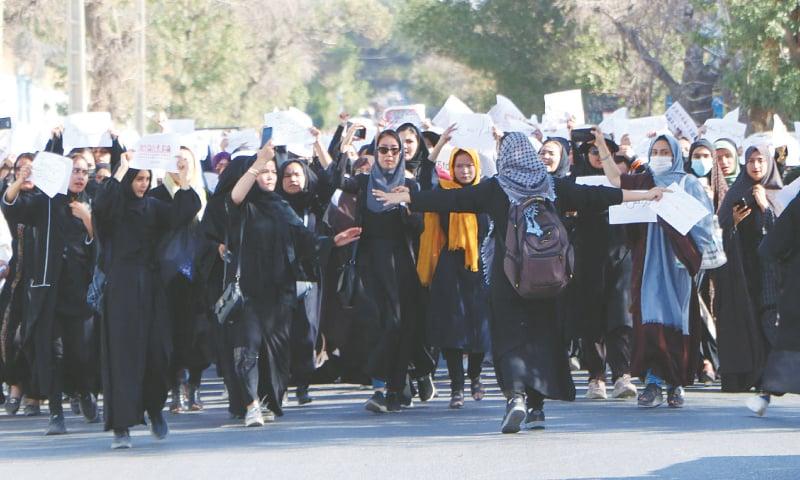GENEVA: The dire human rights situation for women and girls in Afghanistan has provoked international concern and calls for urgent action. As the United Nations Human Rights Council opened its fifty-third regular session, reports highlighted the profound and all-encompassing backlash against women’s and girls’ rights since the Taliban regained power. The systematic erosion of their fundamental rights and freedoms has sparked outrage, prompting calls for the international community to redouble efforts to protect and empower Afghan women and girls.
The Taliban’s regressive policies and oppressive measures have plunged Afghan women and girls into a state of despair, as they face an environment marked by discrimination, violence, and a loss of autonomy. Edicts issued by the de facto authorities have effectively erased women and girls from public life, depriving them of access to education, employment, and justice. Gender-related killings, occurring within homes, public spaces, and detention facilities, have become alarmingly frequent, with no legal protection or recourse available.
Richard Bennett, the Special Rapporteur on the situation of human rights in Afghanistan, underscored the Council’s responsibility to prioritize the restoration, protection, and promotion of the rights and freedoms of Afghan women and girls. Despite promises of inclusivity, the Taliban’s rule has only intensified the deprivation of fundamental rights for marginalized groups associated with the former Islamic Republic and those who resist the Taliban’s ideology.
Nada Al-Nashif, the United Nations Deputy High Commissioner for Human Rights, expressed deep concerns about the discriminatory and restrictive environment in Afghanistan. She urged the international community to reject the normalization of extreme discrimination and violence against women and girls, emphasizing that such blatant forms of gender-based discrimination should never be accepted anywhere.
The situation in Afghanistan has garnered widespread condemnation, with human rights defenders and organizations emphasizing the urgent need for action. Madina Mahboobi, a prominent human rights defender, described the current state of affairs as catastrophic, stressing the vital role of women’s active participation in rebuilding Afghan society.
Shaharzad Akbar, Executive Director of Rawadari, vehemently criticized the international community for either passively observing or actively assisting in normalizing the Taliban’s oppressive regime. She called upon member states to refrain from any actions that further legitimize the Taliban’s discriminatory policies and to avoid creating an impression of de facto recognition.
As the discussion unfolded at the Human Rights Council, speakers expressed alarm at the escalating human rights crisis faced by women and girls in Afghanistan. The restrictions on education, employment, and access to justice pose severe risks, leaving over a million girls vulnerable to violence, exploitation, and child marriage. The use of cruel and degrading punishments, such as stoning and flogging, has raised significant international concern, as they violate Afghanistan’s obligations under international law.
The urgent plea from the international community is for greater efforts to support and empower Afghan women and girls. Redoubling endeavors to protect their rights and provide necessary resources is seen as paramount in combating the severe deprivation they face. With the dire situation in Afghanistan requiring immediate attention, the international community’s response will be crucial in ensuring that the ambitions, dreams, and potential of Afghan women and girls are not consigned to a tragic graveyard.


